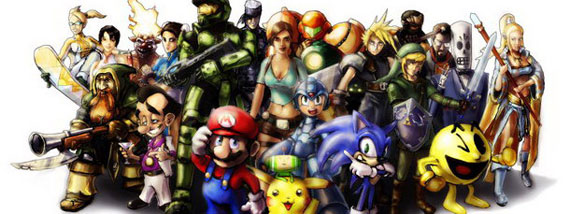The ongoing debate on the effect of video game play has often had negative connotations – players acting violently, lacking of personal interaction, and reducing their physical activity – but now there is evidence video game play could also have a positive impact and help people live a healthier, happier lifestyle.
Virtual Reality Experiences Affect Real-World Behavior
A recent study involving college students looked at the demonstrated players acting as virtual reality villains tended to “punish” anonymous strangers after play. Essentially, players took on the role of their VR character and acted as he or she did in the game. The study was published in Psychological Science, a journal of the Association for Psychological Science. Previous studies have shown evidence violent video games result in loss of self-control in teens and this latest study backs up these findings.
The study included 194 undergraduate students who took part in two separate studies that were presented to participants as unrelated. The randomly chosen group played five minutes of a video game fighting enemies in the role of a heroic avatar, a villainous avatar, or a neutral avatar. Following play, they took part in a blind taste test, supposedly unrelated to the video game, and were asked to taste chocolate or spicy chili sauce and give a future participant either of the two tastes to sample in whatever amount they chose.

Researchers found participants who had played heroic avatars poured twice as much chocolate as chili sauce for their tasting counterpart, whereas those who had assumed the role of a villain poured nearly twice as much chili sauce than chocolate. A follow-up study including 125 undergraduate students confirmed the findings of the first study.
Becoming a New – and Healthier – Person
According to Gunwoo Yoon, lead author from the University of Illinois at Urbana-Champaign, “Our results indicate that just 5 minutes of role-play in virtual environments as either a hero or villain can easily cause people to reward or punish anonymous strangers.” In conclusion, Yoon and his study co-author Patrick Vargas suggest virtual environments “… give individuals the chance to assume identities and encounter situations they would not be able to in the real world. They say it provides “a vehicle for observation, imitation and modeling.”

Yoon and Vargas also reported identification with an avatar did not appear to affect behavior in real life. They believe this shows behaviors occur “…despite modest, equivalent levels of self-reported identification…” and individuals “… are prone to be unaware of the influence of their virtual representations on their behavioral responses.”
Though the results of the study might seem to indicate video games have the ability to affect players in a negative manner, it’s easy to channel these findings into positive results. If a video game is able to influence a player’s real-world behavior, it could affect his or her approach to fitness and nutrition. Assuming the role of a fit, physically active avatar could result in an increase in real-world physical activity.











